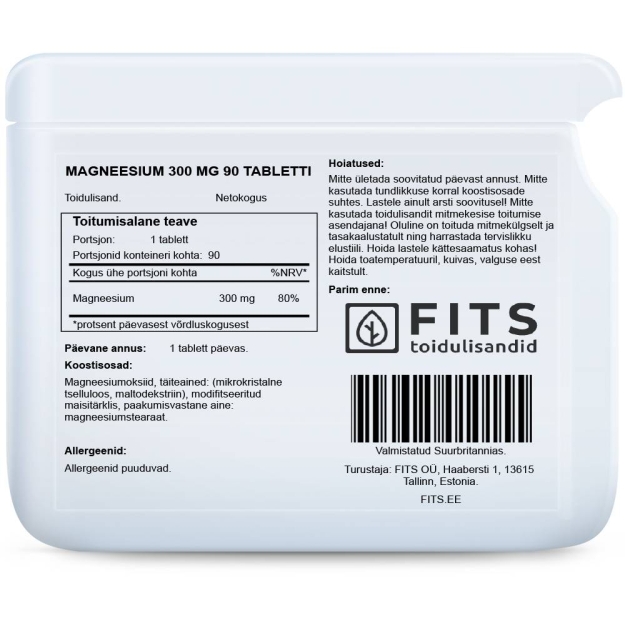Magnesium helps regulate transportation of calcium in our body and is essential for the proper mineralization of bones. Moreover, it also participates in the work of muscles and in the transmission of nerve impulses. Magnesium is involved in more than 300 enzymatic reactions - it is necessary for the transmission of nerve impulses, temperature regulation, detoxification, energy production and maintenance of healthy bones and teeth. Besides, it is vitally important for the health of the cardiovascular system.
Benefits of magnesium:
- It is required for the metabolism of carbohydrates, proteins and lipids.
- It helps regulate transportation of calcium.
- It is required for correct mineralization of bones.
- It takes part in the transmission of nerve impulses and the work of muscles.
- It plays an important role in maintaining heart and cardiovascular health.
- It helps in thinning blood, relaxes blood vessels and reduces the risk of having a heart attack.
- It reduces blood pressure moderately.
- It plays a key role in the metabolism of calcium.
- It is important for the maintenance of health and the formation of bones and teeth.
- It helps prevent breaking of bones and binds calcium in the tooth enamel, thus preventing the formation of caries.
- It may reduce the risk of developing asthma and is also often used to treat this disease.
- It is used for preventing and treating cardiovascular diseases.
- It may extend life expectancy of patients with chronic heart failure and help reduce blood pressure.
- It is used to maintain the health of patients with diabetes, urolithiasis, osteoporosis, symptoms of PMS, muscle spasms and migraines.
- It is used to treat chronic fatigue syndrome.
























-230x230h.png)








